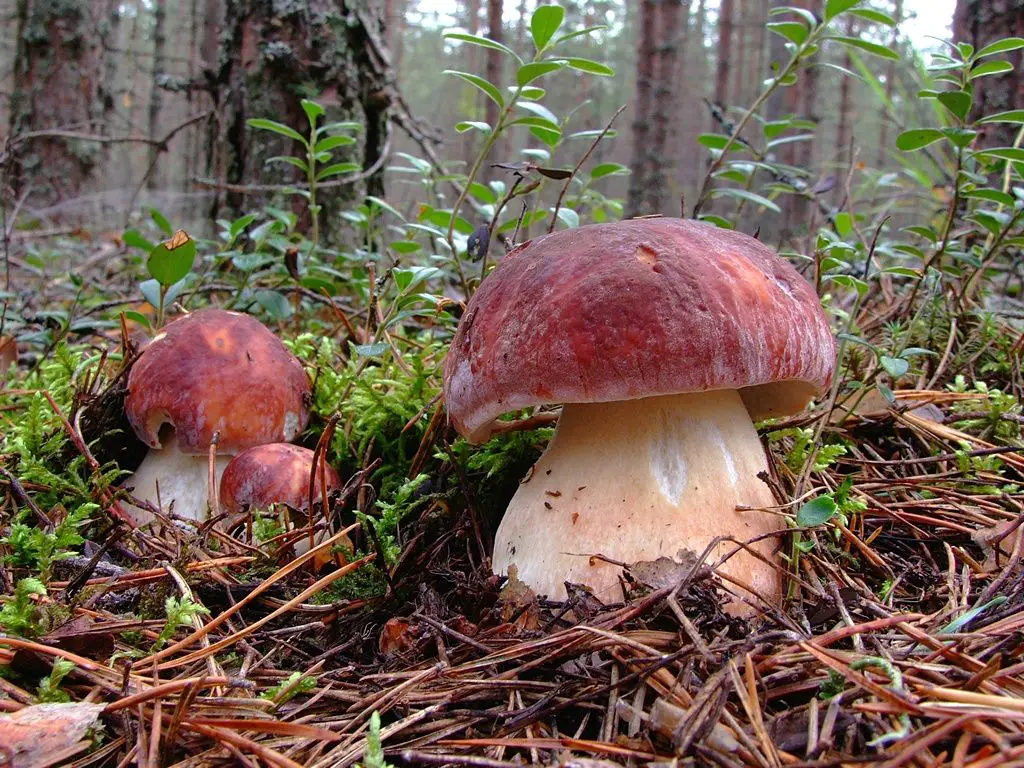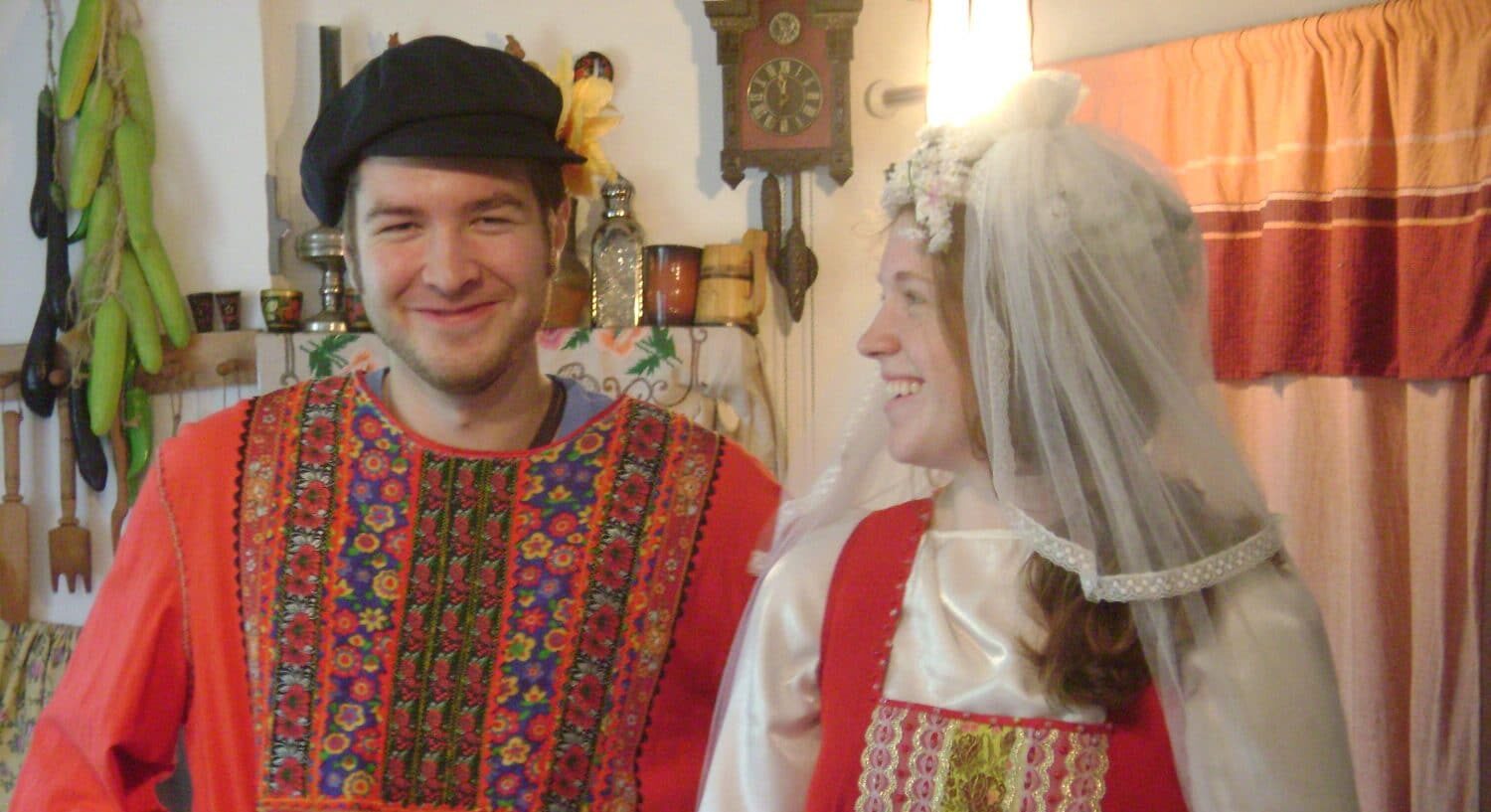Learn Russian with this free phrasebook and its recordings made by a native Russian language speaker. For a deeper learning experience, see these online and study abroad experiences from SRAS!
Today, Russian is spoken by approximately 258 million people worldwide, making it the eighth most spoken language in the world. Russian was spread by the colonial efforts of the expanding Russian Empire and later under the Russification efforts by the Soviets. Russian is now in decline in many areas formerly ruled by Russia and the USSR, but it remains an important language internationally. Russian is one of the six official languages of the United Nations, along with English, French, Spanish, Chinese, and Arabic. It is also, along with English, one of two language that astronauts are expected to know for space travel. Lastly, it is also among the languages that many security and intelligence forces around the world consider to be important.
Russian in written in the Cyrillic alphabet, first developed in the 9th century by brothers Cyril and Methodius as part of their efforts to spread Christianity in what was then the First Bulgarian Empire. It has gone through many changes, but the modern Cyrillic script used by Russian today was mostly finalized in the 18th century, under reforms led by Tsar Peter the Great. The Soviets later further simplified the alphabet by dropping several letters in an attempt to make it easier to learn and further spread literacy and education. The Russian language overall has been heavily influenced throughout its history by Mongolian, French, and English, making it a unique Slavic language.
The Talking Phrasebook Series presents useful phrases and words in side-by-side translation and with audio files specifically geared to help students work on listening skills and pronunciation. Each entry below, divided by category, features an English word or phrase in the left column and its Russian translation in the right. The Russian is presented in in English transliteration on top and in the original Cyrillic below that.
In the center column for each row is a play button. The recorded file will feature first English, then the Russian in three versions: one slow, one with each syllable broken out, and a last version that will be spoken as it might be overheard in a conversation between native speakers.
For lots more free resources for learning Russian, make sure to check out this huge list on our site!
Survival Basics for Russian
| Hello! | Privet! (Привет!) *informal, conversational – to greet a friend |
|
| Hello! | Zdravstvuite! (Здравствуйте!) *more formal – to greet a teacher/passer-by |
|
| Yes | Da (Да) |
|
| No | Net (Нет) |
|
| Good morning! | Dobroe utro! (Доброе утро!) |
|
| Good afternoon! | Dobryi den’! (Добрый день!) |
|
| Good evening! | Dobryi vecher! (Добрый вечер!) |
|
| What’s up? | Kak dela? (Как дела?) |
|
| What’s up? | Kak pozhivaesh (sing.) or kak pozhivaete? (pl./formal) (Как поживаешь? Как поживаете?) |
|
| How are you? | Kak ty? (sing.) or Kak vy? (pl./formal) (Как ты? Как вы?) |
|
| Good, thanks, and you? | Khorosho, spasibo, a ty? (Хорошо, спасибо, а ты?) |
|
| Good bye! | Poka! (Пока!) *infomal, conversational |
|
| Good bye! | Do svidaniya or Vsego dobrogo! (До свидания! Всего доброго!) *more formal |
|
| See you later! | Uvidimsya! (Увидимся!) |
|
| Sorry! | Izvini! (Извини!) |
|
| Open/closed | Otkryto/zakryto (Открыто/закрыто) |
|
| Pull/push | Na sebya/ot sebya (На себя/от себя) *when referring to a door |
|
| Small/big | Malenkiy(aya)/bol’shoy (Маленький/большой) |
|
| Do you speak English? | Ty govorish po-angliyski (sing.) or Vy govorite po-angliyski? (pl./formal) (Ты говоришь по-английски? Вы говорите по-английски?) |
|
| I don’t speak English. | Ya ne govor’u po-angliyski. (Я не говорю по-английски.) |
|
| I only speak a little Russian. | Ya chut’-chut’ govor’u po-russki. (Я чуть-чуть говорю по-русски) |
|
| I understand/I don’t understand. | Ya ponimayu. (Я понимаю.)/Ya ne ponimayu. (Я не понимаю.) |
|
| Thank you!/Thank you very much! | Spasibo! (Спасибо!)/Bol’shoe spasibo or spasibo bol’shoe! (Большое спасибо!) |
|
| Very well, thanks! | Ochen’ khorosho, spasibo! (Очень хорошо, спасибо!) |
|
| Good/bad | Khorosho (adv.)/khoroshiy/aya (adj. m/f) (Хорошо, хороший/ая) Plokho (adv.)/plokhoy/aya (adj. m/f) (плохо, плохой/ая) |
|
| Please | Pozhaluysta (Пожалуйста) *When asking for something politely |
|
| You’re welcome! | Pozhaluysta! or Ne za chto! (Пожалуйста! Не за что!) *when responding to “Спасибо!” |
|
| Excuse me! | Izvinite, pozhaluysta! (Извините, пожалуйста!) |
|
| A little | Chut’-chut’ (Чуть-чуть) |
|
| Could you speak more slowly? | Vy ne mogli by govorit’ pomedlennee? (Вы не могли бы говорить помедленнее?) |
|
| Could you repeat, please? | Povtorite, pozhaluysta! (Повторите, пожалуйста!) |
|
| Could you write that down? | Vy ne mogli by eto napisat’? (Вы не могли бы это написать?) |
|
| My bag/wallet/passport was stolen | Moyu sumku/moi koshelek/pasport ukrali. (Мою сумку/мой кошелек/паспорт украли). Note that in Russian “сумка” is feminine (hence, the use of feminine pronoun, and both “кошелек” and “паспорт” are masculine). |
|
| I need a doctor! | Mne nuzhno ko vrachu! (Мне нужно ко врачу). |
|
| Call the police! | Vyzovite politsiyu (pl./formal) (Вызовите полицию!) |
Introductions in Russian
Asking Directions
Shopping
| How much does that cost? | Skol’ko eto stoit? (Сколько это стоит?) |
|
| The menu, please! | Bud’te dobry menu! (Будьте добры меню!) |
|
| I’d like a beer, please | Ya by khotel(a) zakazat’ pivo, (Я бы хотел(а) заказать пиво). |
|
| I’d like the bill, please. | Mozhno shchet, pozhaluysta? (Можно счет, пожалуйста?) |
|
| Do you accept credit cards? | Vy prinimaete kreditnye karty? (Вы принимаете кредитные карты?) |
Counting
(The audio files have been grouped into four quicker sets.)
| 0 | nol’ (ноль) |
|
| 1 | odin (один) |
|
| 2 | dva (два) |
|
| 3 | tri (три) |
|
| 4 | chetyre (четыре) |
|
| 5 | pyat’ (пять`) |
|
| 6 | shest’ (шесть) |
|
| 7 | sem’ (семь) |
|
| 8 | vosem’ (восемь) |
|
| 9 | devyat’ (девять) |
|
| 10 | (1-10) |
desyat’ (десять) |
| 11 | odinnatsat’ (одиннадцать) |
|
| 12 | dvenadsat’ (двенадцать) |
|
| 13 | trinadsat’ (тринадцать) |
|
| 14 | chetyrnadsat’ (четырнадцать) |
|
| 15 | pyatnadsat’ (пятнадцать) |
|
| 16 | shestnadsat’ (шестнадцать) |
|
| 17 | semnadsat’ (семнадцать) |
|
| 18 | vosemnadsat’ (восемнадцать) |
|
| 19 | devyatnadsat’ (девятнадцать) |
|
| 20 | (11-20) |
dvadsat’ (двадцать) |
| 21 | dvadsat’ odin (двадцать один) |
|
| 22 | dvadsat’ dva (двадцать два) |
|
| 30 | tridsat’ (тридцать`) |
|
| 40 | sorok (сорок) |
|
| 50 | pyat’desyat (пятьдесят) |
|
| 60 | shest’desyat (шестьдесят) |
|
| 70 | sem’desyat (семьдесят) |
|
| 80 | vosem’desyat (восемьдесят) |
|
| 90 | devyanosto (девяносто) |
|
| 100 | (21-100) |
sto (сто) |
| 111 | sto odinnadsat’ (сто одиннадцать) |
|
| 125 | sto dvadsat’ pyat’ (сто двадцать пять ) |
|
| 200 | dvesti (двести) |
|
| 300 | trista (триста) |
|
| 400 | chetyresta (четыреста) |
|
| 500 | pyat’sot (пятьсот) |
|
| 600 | shessot (шестьсот) |
|
| 700 | sem’sot (семьсот) |
|
| 800 | vosem’sot (восемьсот) |
|
| 900 | devyat’sot (девятьсот) |
|
| 1000 | (111-1000) |
tysiacha (тысяча) |
Additional Resources for Understanding Russian
For a deeper learning experience, see these online and study abroad experiences from SRAS!
For lots more free resources for learning Russian, make sure to check out this huge list on our site!

The Circus in Russia: Olga’s Blog
Olga here turns her attention to the modern Russian circus, describing what it is like to attend a contemporary performance, from the atmosphere inside the circus building to the acts that still draw enthusiastic audiences today. Written in simplified, modern Russian, her account offers a firsthand glimpse into how a traditional cultural institution continues to […]

The Language and History of Caviar: Olga’s Blog
Olga below describes the place of caviar in Russian food culture. In simplified Russian, she describes where the delicacy is harvested from, the major types of caviar, and how the types differ in cost and quality. We also provide an English primer below discussing more of the history of caviar, how it is eaten and […]

Mushrooms in Cultures and Cuisines: Olga’s Blog
Olga below continues her discussion of the deeply held place that mushrooms have in Russian culture. In part one of this discussion, she focused on how and where and find the mushrooms. In part two, below, she discusses how the mushrooms are preserved, prepared, and consumed. A staple of the regional diet for centuries, mushrooms […]

Mushroom Season Has Begun! Olga’s Blog
Olga below discusses the deeply held national tradition of mushroom gathering. An important part of Russian food tradition for many centuries, Russian children are taught in school from an early age to tell the difference between various types of native mushrooms. Many, like Olga, will go with relatives and friends to the woods to put […]

Study Abroad in America for Russians: Olga’s Blog
As part of her major program in international relations at Moscow State University, Olga applied to study abroad in the United States in 2007. As was not uncommon for students applying for study abroad in either direction, Olga hit several bureaucratic snags. What is perhaps most remarkable about the below text, however, is the description […]





